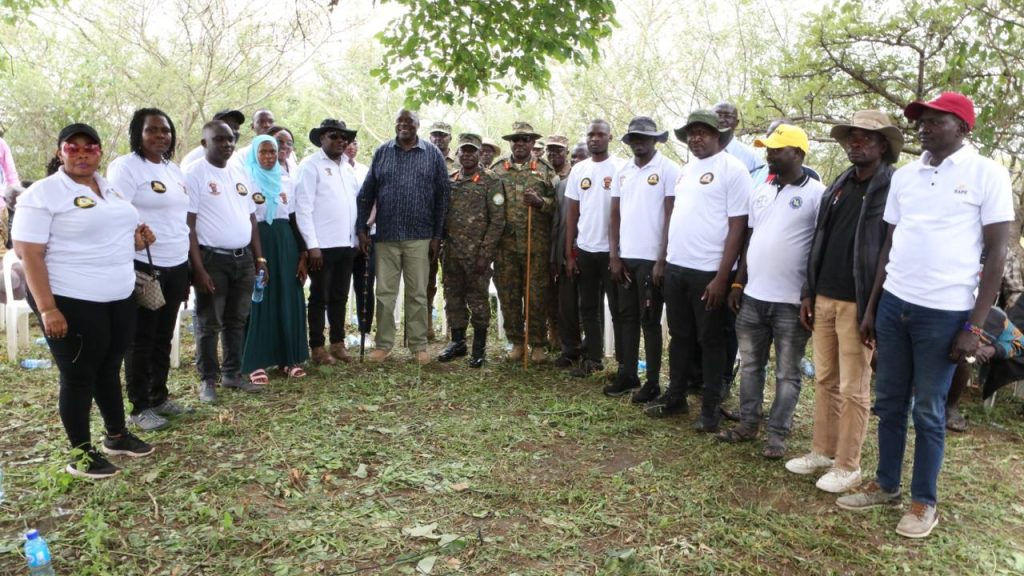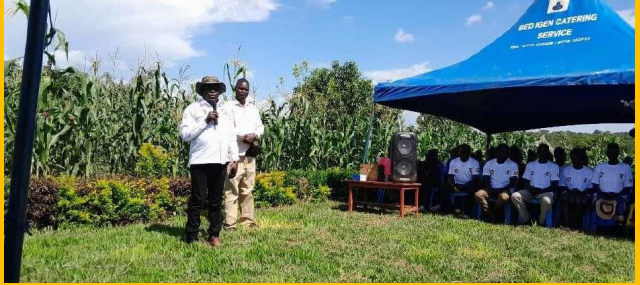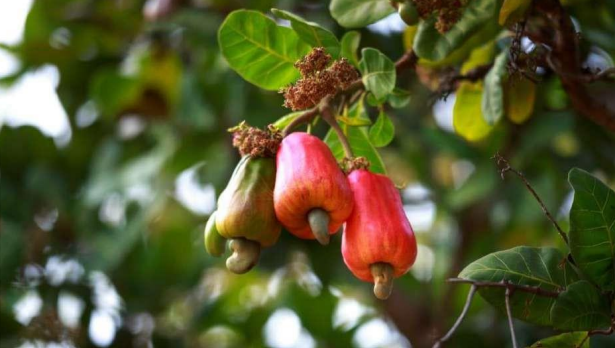CASHEW NUTS IN TESO SUBREGION
The MK Youth Initiative Foundation launched a Cashew nut farming project in Kalaki District (Eastern Uganda, Teso Subregion).
The project aims to empower Eastern Uganda by transforming the Cashew nut sector. Our organization, Teso Professionals Enterprise Development Organization Limited (Teso PEDO & Partners), is committed to sustainable development, focusing on transforming the rural economy, protecting the environment, and empowering communities.
Introduction
The project seeks to address the challenges faced by Eastern Uganda, such as declining agricultural productivity due to climate change and environmental degradation. Through our initiative, Conservation for Life, Livelihoods, and Enterprise Development (CALLED), we aim to leverage the potential of the Cashew nut sector to promote economic growth, enhance resilience, and improve livelihoods.
Project Overview
This initiative will help address the key challenges in Eastern Uganda by encouraging Cashew nut farming. It focuses on boosting agricultural productivity, improving resilience to climate change, and fostering economic opportunities through sustainable practices.
The Context
Winning Regional Support:
Gaining the support of Eastern Uganda means embracing the very heart of the nation. This region is not only rich in cultural heritage but also defined by its hardworking and resilient people. By investing in a project that addresses the struggles of local farmers, you demonstrate your commitment to their welfare and align with their aspirations for sustainable growth and improved livelihoods. Cashew nut farming is not just a crop; it’s a tool for empowering communities and sparking hope.
Cashew Sector Significance
Cashew nuts, often referred to as the “Gold Crop of Africa,” offer many advantages. They have relatively low agronomy costs and a high global market value. The crop presents a significant opportunity for economic growth in Eastern Uganda, especially due to its resilience to harsh climate conditions, making it a valuable asset for climate adaptation and ecosystem preservation.
Stakeholders Involved
This project is a collaborative effort, involving a diverse range of stakeholders, each playing a crucial role in its success:
Local Farmers:
The heart of this project, local farmers will grow the Cashew nuts, driving the initiative forward with their dedication and expertise.Community Leaders:
Local leaders will provide invaluable insights to ensure the project meets the needs and aspirations of the community.Government Bodies:
Collaboration with governmental organizations will provide essential support and resources for effective project implementation.Experts and Specialists:
Agricultural experts and community development specialists will contribute their knowledge to guide the project.Local Residents:
The wider community will benefit from increased economic opportunities, contributing to the overall progress of the region.Teso PEDO Ltd Team:
Our organization will oversee the coordination, management, and execution of the project, ensuring its successful realization.
Project Objectives
Enhance Productivity:
Increase Cashew nut production in Eastern Uganda by implementing sustainable agricultural practices.Economic Empowerment:
Create viable income opportunities for households, fostering economic transformation and reducing poverty.Environmental Resilience:
Promote resilience to climate change and environmental protection through sustainable Cashew cultivation.Value Addition:
Establish value addition processes, from aggregation to processing, ensuring quality products for mainstream markets.Community Engagement:
Set up model farms to demonstrate best practices and distribute seedlings to communities for Cashew cultivation.Cooperative Support:
Strengthen farmers’ cooperatives by providing training, economic assistance, and shared resources.
Strategies & Implementation
Market Alignment:
Leverage partnerships with national committees, government bodies, and development partners to align the project with national transformation agendas.Community Engagement:
Establish community groups that support the entire journey from production to market access.Model Farms:
Set up model Cashew farms to showcase optimal cultivation techniques and provide practical training to local farmers.Seedling Distribution:
Distribute Cashew seedlings to communities to encourage widespread adoption of Cashew farming.Cooperative Empowerment:
Strengthen farmers’ cooperatives by providing economic support, training, and resources for sustainable production.
Impact & Outcomes
- Improved livelihoods for households through increased income from Cashew nut production.
- Enhanced resilience of Eastern Uganda’s agriculture to climate change, safeguarding livelihoods and ecosystems.
- Strengthened local economies through value addition, access to mainstream markets, and cooperative initiatives.
- Alignment with national development goals, contributing to the overall growth of the region.
Resource Requirements
To ensure the success of this transformative project, we seek funding for:
Human Resources:
Experts in agricultural practices, value addition, and cooperative management.Technology:
Tools for efficient production, processing, communication, and training.Logistical Support:
Transportation and infrastructure for model farms, seedling distribution, and cooperative activities.
Media Campaign & Sensitization
Conclusion
By supporting this project, you are embracing the spirit of Eastern Uganda—a spirit of resilience, progress, and unity. This is not just a project; it’s a shared journey towards a better future. Your support has the potential to secure not only political backing for the region but also deep personal connections with the people. Thank you for considering this opportunity to make a lasting impact.






